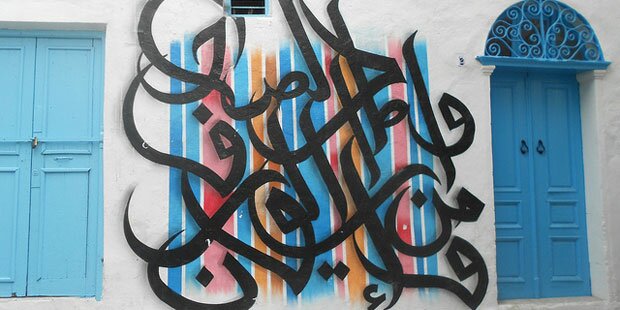Tunisia, cradle of the Arab Spring, is in deep trouble: a series of shocking political assassinations of important figures of the leftist opposition, a violent salafi movement opposed to the conservative Islamist government, plunging public support for the institutions of the state. In nearby Egypt, military officers and the old civilian elite have just seized back power via canny manipulation of public opinion and savage violence, though they appear to be leading the country toward civil war. Here, a pair of Tunisian intellectuals call for a national effort to save Tunisia’s embryonic democracy before it tears itself apart.
It has been six months since the assassination of Chokri Belaid, a killing which was followed on July 25 by the assassination of Mohamed Brahmi, a leftist deputy in Tunisia’s national Constituent Assembly. This latest murder came as Tunisians have nearly finished drafting our new constitution and preparing for new elections.
Despite the ‘revelations’ from the government regarding the supposed authors of the crime, the important questions will almost certainly never be answered: whose hand guided the killers? What kind of support network did they have?
What was the point of the murders? Political assassinations typically have similar objectives: sow confusion, reshuffle the cards in the political game, spread discord among both the political class and the people they govern. In Tunisia, the point was even sharper: these killings were intended to stop the development of a nascent democracy in its tracks.
We need to note that these political crimes are part of a longer pattern of counter-revolutionary moves. Since Dec. 17 2010 [when Mohamed Bouazizi burned himself alive, sparking the Tunisian revolution], we have seen everything from savage police repression, to the banning of collective action, to imprisoning revolutionaries and indefinite postponing of justice for old-regime crimes.
Since Mohamed Brahimi was murdered, violence and police repression have been increasing, claiming victims like Mohamed Bel Mufti [a leftist Popular Front politician and activist killed by police at a rally in memory of Brahmi]. We are going down what appears to be a political dead end, with three factions battling toward a bloody and ruinous finish.
The partisans of electoral legitimacy, first, refuse to acknowledge the seriousness of the situation, huddling into a defensive position, closing their eyes to the burning issues of the day, to the demands of the people. By contrast, those who claim they are partisans of the revolution’s ideals demand that the people seize power directly, but they are unable to offer an inclusive alternative that does not sound like simple party self-interest. Finally, the political opposition [the left], in the name of some kind of consensus, seeks to take power itself by calling for the dissolution of hard won and barely implemented political institutions.
For the entirety of the past two years, each of these factions has claimed exclusive legitimacy and sought to exclude its adversaries from the political process. This situation thwarts any possibility of dialogue, and seems to risk driving us straight into civil war. That is an outcome that would please the enemies of the Tunisian revolution, both inside and outside the country, in a regional context that grows ever more chaotic.
We, Tunisians who are well aware of the perilous ground our country is passing through, refuse to allow the Algerian and Egyptian scenarios to play out here. We are determined to avoid civil war, counter-revolution and a return to a police state; we are determined to give everything to arrive at a consensus solution, one which can only be arrived at politically. Such a solution must include the entire Tunisian people from every walk of life, and the entire political class, including all of its political factions.
Our house is already burning, and although our politicians are still playing the role of pyromaniac firemen, the National Constituent Assembly remains in spite of its faults the only common space where a workable political compromise might rapidly emerge.
The time for accusations and for dishonest denunciations is over. Our only guide in the coming days must be the bright line between those who are trying to start a civil war, to accelerate the crumbling of whatever holds us together as a nation and a society, and those who oppose civil war and societal collapse in spite of their differences of ideology and political opinion.
This outcome, helped along by concrete moves toward justice for old-regime crimes, will be the only way that we might fulfill the original promise of the Tunisian revolution, answer its calls for work, liberty and national dignity.
Hela Yousfi and Choukri Hmed Translated from French by International Boulevard
23 Aug 2013




































